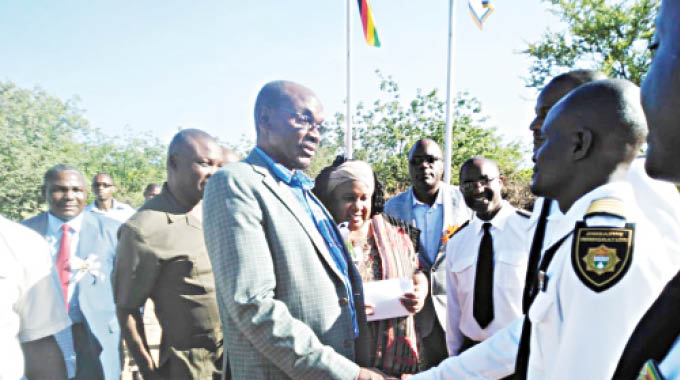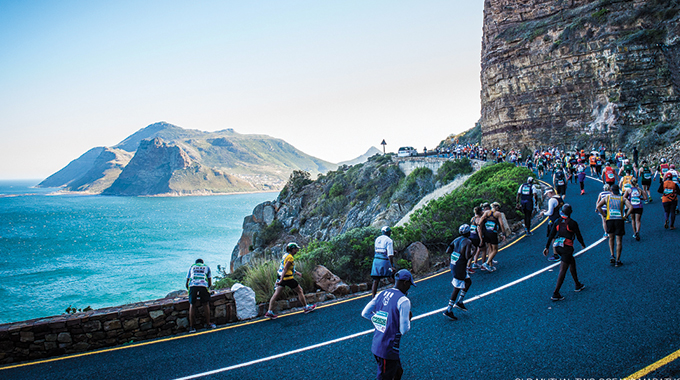Independence Special: Binga as a crossing point

Leonard Ncube recently in Binga
BINGA District, occupying most of the local section of the Zambezi basin contributed immensely to the country’s war of liberation by providing safe crossing points for freedom fighters to and from Zambia.
While the people of Binga were displaced from the Zambezi River by the colonial government to pave way for construction of the Kariba Dam which eventually literally cut them off from their folks in Zambia, the Tonga people remained a safe haven and source of information for the freedom fighters.
By virtue of being along the river, Binga District fell within Northern Front 1 (NF1), a region stretching from Kazungula Border Post with Botswana, along the Zambezi River to Kariba, and covering the country’s western areas to Tsholotsho where Zipra fighters operated.
The river stretch had Kazungula, Chesa, Victoria Falls, Gorges, Mukuni, Natebe, DK, Chiswe, Sibangwazi and Kariba crossing points.
Freedom fighters used dinghies imported from Germany and Russia to cross the crocodile-infested Zambezi River, relying on information provided by people living along the river for intelligence about the whereabouts of the colonial soldiers.
Some Zipra deployees were stationed in communities near crossing areas and lived among the villagers in Binga who provided them with food, shelter and information.
Vice President Kembo Mohadi who was in Binga at the weekend said Government would never forget the people of Binga for their contribution.
“When we went to Zambia, we passed through this place here in Binga. You helped us with food, shelter and information about the enemy. All this means that you equally fought the war of liberation,” said VP Mohadi as he addressed hundreds of villagers from Ward 5’s Nsungwaale area at Nsungwaale Business Centre.
The VP had visited the place to assess the extent of damage in Nsungwaale area after the floods that killed an 84-year-old villager and destroyed 181 homesteads leaving 37 families stranded.
He said Government was mourning together with the people of Binga for the loss and would ensure that all are catered for until they are self-sufficient.
VP Mohadi said Binga is critical to Zimbabwe as he urged all citizens to remain united.
“We should remain united as this country is ours. You were at the border where our freedom fighters used to come and fight the enemy so we will never forget you. You’re very important because you contributed towards the independence of this country and as a Government, we are not going to let you down,” he said.
Former Zipra NF1 regional commander Retired Colonel Watson Tshipa said communities along the Zambezi River played a crucial role in the execution of the liberation struggle.
“In the early years of the war, there were limited crossing points with the main ones being Kazungula, Victoria Falls, DK, Sibangwazi, Kariba and Gorges. Later on, Kazungula became the major crossing point after a cross border transporter, Coal Haul, agreed to carry our people.
“Our movement was now easy as those being deployed to Tsholotsho were dropped at Nata on the Botswana side and crossed into the country while those being deployed to Hwange were dropped in Francistown and crossed via Plumtree. We could also help facilitate movement of African National Congress soldiers into South Africa,” said Rt Col Tshipa.
He said those operating around Hwange, Lupane and Gwayi crossed through Binga.
“Binga communities were critical especially before we had many crossing points. Even after we had renaissance officers, they relied on information from villagers. Information was very critical as that guided freedom fighters on the right time to cross and which point to use,” he said.
A single dinghy, a small boat that is inflated before being propelled using pedals across the river, carried eight people at a time.
Matabeleland North war veterans chairman, Cde Sonny Mnguni, who is also Bubi Member of Parliament said freedom fighters relied on fishermen to confirm if the crossing point was safe.
Rowing material was kept by the fishermen.
“We worked with villagers, especially fishermen, whenever we needed to know whether it was safe to cross or not. They were the ones who communicated with us on the whereabouts of the enemy and as Zipra fighters, we had some community leaders we depended on as they were steadfast and trustworthy,” he said.
A former freedom fighter, Cde Davison Ndlovu, recounted how he survived Monde, a bombing where Ian Smith’s men attacked a group of freedom fighters near Victoria Falls.
He said in the event that the crossing points were monitored by the enemy, freedom fighters had other options including following wild animals and crossing from where they would be drinking along the Zambezi River.
Cde Ndlovu said they could tell whether or not Smith’s soldiers were close by, judging from the animals’ reaction at their sight. — @ncubeleon









Comments